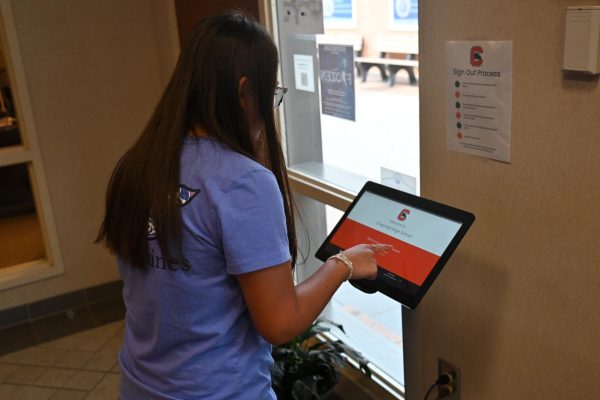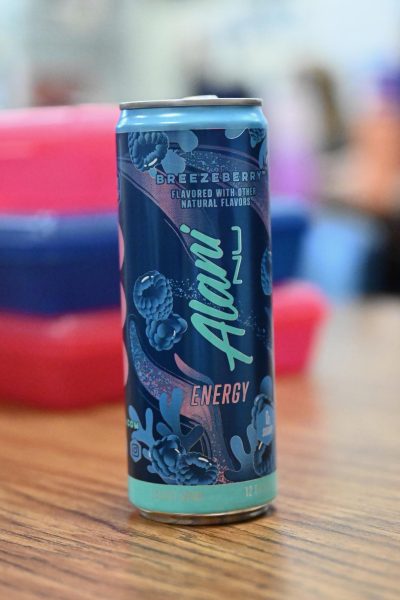Caffeine addiction can pose health risks
Sophomore Jayden Dixon drinks coffee during class. Dixon drinks caffeine regularly.
Caffeine. It’s in everything: soda, candy, coffee — you name it.
Many people consume caffeine for its energy boosting effects, but how safe is this seemingly harmless chemical?
The short answer is very safe, but as with everything, it’s important to know how much is too much.
Caffeine is a natural chemical that can be found in tea leaves, cocoa, coffee beans and other similar things in nature, but it’s usually in relatively small and healthy amounts.
However, the issue lies in synthetic caffeine, which can be found in energy drinks.
Energy drinks sometimes contain up to 500mg of caffeine.
To put this into perspective, according to the FDA, adults should consume no more than 400mg of caffeine a day and adolescents (12-18) should consume no more than 100mg of caffeine per day.
The conflicting part is that many teenagers are drinking high-sugar, high-caffeine filled energy drinks in the morning and are oblivious to the potential health risk associated with such a high caffeine intake.
“On the off chance that you have some sort of underlying heart issue and then get your heart rate up, (caffeine) overworks (your heart), and it can’t handle it,” said school nurse Pam Tolleson.
Teens often say the motive behind such a high caffeine intake is because they aren’t getting enough sleep at night and feel tired all throughout the day without caffeine.
What these teens don’t know, however, is that the very thing that’s keeping them awake throughout the day is actually preventing them from getting the rest that they need.
Sleep deprivation can cause a slew of health issues, which can be more intense for a teenager whose body and mind are still developing.
One of the issues associated with sleep deprivation is difficulty concentrating. It’s crucial for teens to be able to concentrate in order to perform well in school and also for teens who drive. According to Verywellhealth.com, the overconsumption of caffeine can increase diastolic blood pressure.
Researchers found that caffeine increases the diastolic blood pressure more in teen girls than it does in teen boys.
Another conflict involving caffeine is that it can be extremely addictive and teens are at a higher risk of addiction as is.
Many teens admit to caffeine addiction and feel as though they cannot function without it even if they want to cut it. For teens looking to make changes, Tolleson has some advice.
“The keyword is to wean off it,” Tolleson said. “Don’t cut it out cold turkey because you’re gonna have some headaches that are terrible, but you can wean off it slowly.”
Your donation will support the student journalists of Chapman High School. Your contribution will allow us to purchase equipment and cover our annual website hosting costs.






